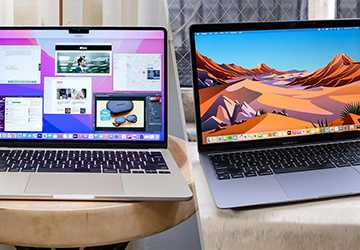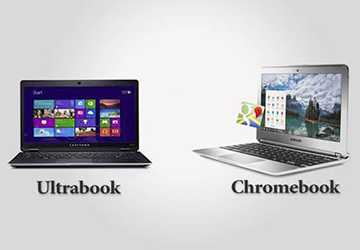Selecting the Perfect Laptop to Suit Your Requirements
With countless options available today, choosing the perfect laptop can be daunting. Whether you need it for work, school, or occasional use, making the right choice requires careful consideration of your specific needs. This article will guide you through laptop selection, focusing on choosing a laptop based on specs, laptop options for students, and a computer for work.

Understand Your Requirements
Before diving into specs, you must understand what you need from a laptop. Are you a student looking for a portable and affordable device? Or a professional who needs a powerful device for demanding applications? Identifying your primary use case will help you narrow down your choices significantly.
Choosing the Right Laptop for Work
When choosing a laptop for work, consider your work type. For example, if you're into graphic design, video editing, or software development, you'll want a powerful device with high-end specs. On the other hand, if your job involves more day-to-day tasks like word processing, email, and web surfing, a mid-range laptop will suffice.
Essential Considerations for Work Laptops
1. Performance
Make sure your laptop has a powerful processor (Intel Core i5 or i7, AMD Ryzen 5 or 7), enough RAM (at least 8GB, preferably 16GB), and a solid-state drive (SSD) for faster data access and quicker boot times. Experts believe laptops with SSDs can increase productivity by up to 20%.
2. Battery Life
Long battery life is essential, especially if you travel frequently or attend many meetings. You want a device with a battery life of 8-10 hours.
3. Portability
Lightweight and compact designs are helpful when you are on the move. Ultrabooks are an excellent choice for their balance of performance and portability.
4. Security Features
Laptops with features like fingerprint scanners and Trusted Platform Module (TPM) chips are essential for professionals who work with sensitive information.
5. Display Quality
High-resolution displays (Full HD or higher) make it easier to process details and reduce eye strain during long periods of use.
Choosing a Laptop Based on Specs
When choosing a laptop based on specs, it is essential to understand the core components that affect performance. Here's a breakdown of the key specs to consider:
Processor (CPU)
For most users, an Intel Core i5 or AMD Ryzen 5 processor offers a good balance between performance and price. However, if you plan on video editing or 3D rendering, consider an Intel Core i7/i9 or AMD Ryzen 7/9.
Random Access Memory (RAM)
8GB of RAM is recommended for general use. For more demanding applications, 16GB or more is a better choice. Upgrading from 4GB to 8GB RAM can increase overall system performance by 15-30%.
Storage
Choose an SSD over a traditional hard disk drive (HDD) because it's faster. A 256GB SSD is usually sufficient for most users, but if you store large files or install many applications, consider 512GB or 1TB.
Graphics (GPU)
A dedicated GPU, such as an NVIDIA GeForce GTX/RTX or AMD Radeon RX, is essential for gaming, video editing, and other graphics-intensive tasks. However, integrated graphics are more than adequate for general use.
Display
1080p (Full HD) resolution is the standard and is sufficient for most users. However, a 4K display can be helpful when working with high-resolution media. Also, consider the screen size based on your mobile needs — 13 to 14 inches for portability and 15 to 17 inches for a more immersive experience.
Battery Life
Battery life varies widely between models. Ultrabooks and 2-in-1 laptops typically have the best battery life, sometimes lasting more than 10 hours on a single charge.
Connectivity
To future-proof your device, make sure the laptop has a variety of ports (USB-A, USB-C, HDMI, etc.) and supports Wi-Fi 6 and Bluetooth 5.0.
Laptop Choices for Students
Laptop choices for students must balance performance, portability, and affordability. Here are some essential aspects to consider:
1. Budget: Most students will be looking for affordable options. Some excellent budget laptops offer good performance at a fraction of the price of high-end models. The Acer Aspire 5 and HP Pavilion x360 are notable examples.
2. Portability: Lightweight and compact devices are ideal for those carrying laptops to lectures or the library. Ultrabooks and Chromebooks are a good fit due to their light and slim form factors.

3. Battery life: Look for a laptop with at least 8 hours of battery life, which can last a full day of class without recharging.
4. Durability: Consider build quality and durability, mainly if the laptop must be transported frequently. Laptops with metal casings or rugged designs tend to last longer.
5. Performance: While students don't typically need the most powerful specs, a laptop with an Intel Core i3/i5 or AMD Ryzen 3/5 processor, 8GB of RAM, and a 256GB SSD will effectively handle most academic tasks.
6. Software compatibility: Ensure the laptop can run the software required for your coursework. For example, graphic design or engineering students may require specialized software with more powerful hardware.
Recommended Models for Students
1. Apple MacBook Air (M1): This laptop is a great choice for students of all disciplines
2. Dell XPS 13: This machine offers a premium design, strong performance, and an excellent display, which is ideal for students who need a reliable, high-quality machine.
3. Microsoft Surface Laptop Go: An affordable option with a slim design, good performance, and long battery life, perfect for students.
Conclusion
Choosing the right laptop requires weighing several factors: performance, portability, battery life, and budget. Whether you need to select a computer for work, explore laptop options for a student, or focus on choosing a laptop based on specs, it's cr
itical to understand your specific needs.
By carefully considering these aspects and prioritizing what's most important for your use case, you can find a laptop that meets your needs and makes you more productive. Watch for new models and technologies as the laptop market evolves rapidly, regularly bringing better options and improved features.
Related Posts
- Maximizing the Effectiveness of Virtual Assistants A Guide to Efficient Usage
- 6 Common Smartphone Issues and How to Fix Them
- Tips to Protect Your Online Privacy
- Top 10 Artificial Intelligence Tools for Business Automation
- 4 Stand Outs in Smart Home Technology In 2021
- 10 health benefits of Spirulina: Algae as a super food